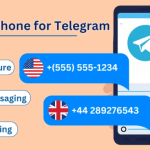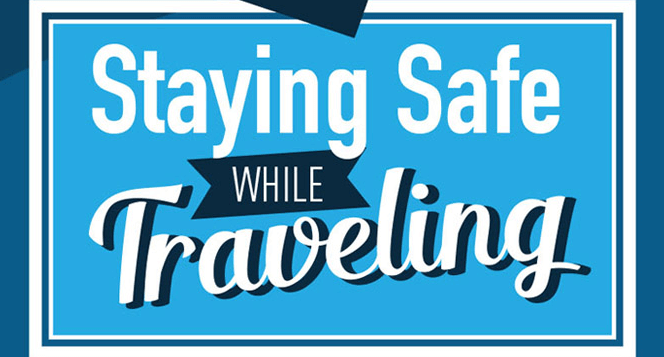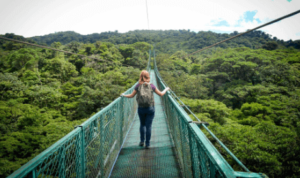Table of Contents
When planning a trip, your to-do list can get pretty long. From organizing luggage to making reservations, there’s always something that needs to get done. But of all the things you’ll need to handle before you leave, safety while traveling should be paramount. Fortunately, there are several ways you can stay safe and ensure a stress-free trip.
Remember that travel safety applies to your home, too
Safeguarding your home should be part of your robust travel safety plan. A house sitter is an excellent option to ensure your home is well-guarded. You could also consider investing in a PO box to prevent mail theft and keep track of correspondance while you’re abroad.
Be informed of your destinations
Whether you’re staying local or traveling abroad, you should always know what the area you’re visiting is like. Know the city’s laws, customs, and neighborhoods. Find out which areas are safest at night and which should be avoided. Most importantly, let others know where you’re going. If someone knows where you are, it’ll be easier to locate you if something goes wrong.
Learn some of the language
Becoming fluent in a foreign language isn’t necessary for a safe, enjoyable trip. However, knowing some key words and phrases will make it easier to get around or ask for help. Not to mention, it’ll show the locals you have respect for their language and want to fit in. Learn how to ask for help.
Always have a map
Most people with cell phones rarely leave home without them. Phones carry everything from calendars to maps. However, you might not always have GPS where you’re traveling. Whether it’s due to poor service, a dead battery, or a lost device, it’s easy to lose your navigation capabilities. So, always pack a paper map or guidebook and keep it in your pocket as a backup.
Have a copy of all your information
When you travel abroad, your passport is your identification. However, losing it can cause major headaches when crossing borders. So, unless you need to cross into another country, you should only carry a copy of your passport and a standard driver’s license.
Always drink responsibly
Traveling to new lands means you have the opportunity to try the local cuisine. It’s an exciting part of visiting a new place. However, when you sit down to eat and drink, always do so responsibly. Limit your alcohol intake, especially if you’re alone, and always keep an eye on your drink.
Use the right bag and wallet
Many travelers often forget how to safely carry things like identification, valuables, and cash. In many cases, a wallet or typical purse might not be the best option. Instead, consider a cross-body purse that zips, a wallet that attaches to your belt loop, or a money belt that sits inside your waistband.
Invest in travel locks
Safety in your hotel room is just as important as ensuring your home is safe while you’re away. The only way to be sure you and your belongings are secure is to take matters into your own hands. So, instead of simply relying on the hotel locks and room safe, invest in a travel lock that attaches to the door.
Try to blend in whenever possible
Are you someone who can spot a tourist in your town a mile away? Unfortunately, tourists are often targeted by pickpockets and muggers because of their apparent unfamiliarity with the area. When you travel, do all you can to fit in. Otherwise, you risk sticking out like a beacon for those who might take advantage of you.
Book transportation ahead of time
Train stations, airports, and subway stations can be pretty dangerous, especially at night. So if you have set plans for your time away, consider booking your transportation ahead of time. This way, you won’t have to spend time fussing with ticket booths or digging for cash when you arrive at the station.
Be mindful of where you get your cash
The safest way to acquire cash when traveling abroad is from a bank. Skimming, in which ATMs are altered to send data to a third party, is a common practice worldwide. It’s especially common in popular tourist areas. To avoid getting skimmed, only withdraw cash inside a bank from a teller.
Know who to call in an emergency
When traveling, you should always know the phone numbers for emergency services, such as 911 in the United States or 112 in Europe. In addition, keep a list of emergency numbers on your person. Emergency numbers include fellow travelers, the hotel where you’re staying, and friends or family back home.
Wrapping up on safe travel
Travel safety can be complicated and frustrating. Even still, you must take steps to ensure your safety to have a fun trip. If you follow the tips listed here, you can guarantee an exciting journey that’ll give you nothing but good memories.




![1000 Girl Attitude Names for Truecaller ID | UPDATED [Included Boys Names] 1000 Attitude Names for Girls on Truecaller](https://edutechbuddy.com/wp-content/uploads/2025/05/ChatGPT-Image-May-21-2025-11_59_39-PM-1-150x150.png)










![1000 Girl Attitude Names for Truecaller ID | UPDATED [Included Boys Names] 13 1000 Attitude Names for Girls on Truecaller](https://edutechbuddy.com/wp-content/uploads/2025/05/ChatGPT-Image-May-21-2025-11_59_39-PM-1.png)